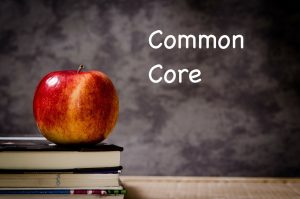
Anyone involved in education over the last decade has had to adjust to a program known as Common Core. It was a cornerstone in President Barack Obama’s “Every Student Succeeds Act,” passed in 2015.
School administrators throughout the United States trumpeted the brilliance of Common Core as the hope of the future. Both major national teachers’ unions loudly backed adoption. Massive claims were made in its favor. The first thing on the Common Core web page is the line, “Preparing America’s Students for Success.” Clicking on the “What Parents Should Know” tab, one reads:
Today’s students are preparing to enter a world in which colleges and businesses are demanding more than ever before. To ensure all students are ready for success after high school, the Common Core State Standards establish clear, consistent guidelines for what every student should know and be able to do in math and English language arts from kindergarten through 12th grade.
Many veteran teachers decried the Common Core. The program prevented teachers from determining what their students needed. Its standards focused on “experiences” unsupported by an underlying knowledge of facts. Some of the suggested practices were ridiculous. Teachers who had doubts were accused of being lazy or uncaring.
Now it appears that the naysayers were right. The Common Core has not achieved its goals. This is the conclusion of a major player in American Education, American College Testing. Their ACT test has been a bellwether of student success for at least a half-century.
Is It Immodest to Wear Deliberately Ripped Clothes?
Failure of Common Core
The bad news about Common Core comes in a report that ACT recently published, “The Condition of College and Career Readiness – 2018.” Its most dramatic finding states,
The percentage of ACT-tested graduates who met or surpassed the ACT College Readiness Benchmark in math—suggesting they are ready to succeed in a first-year college algebra class—fell to its lowest level since 2004; 40% of 2018 graduates met the math benchmark, down from a high of 46% in 2012.
In addition, students’ average score on the ACT math test dropped to its lowest level in more than 20 years—down to 20.5 (on a scale of 1 to 36), continuing a slide from 21.1 in 2012 to 20.7 last year.
What does Saint Thomas Aquinas say about Marriage?
No area of study has been more emphasized than the teaching of mathematics. Ever since the coming of “New Math” in the early sixties, the nation’s schools of education have focused on devising better ways to help children learn to calculate. Every few years, the latest method has been tested and found wanting. Each time, a new crop of professors devised other methods. Textbook companies, seeing immense profits in any situation that would persuade school systems to discard old textbooks and purchase new ones, eagerly used their salespeople to promote the latest method.
Accordingly, the Common Core Math Standards especially focused on mathematics. Untold hours of effort and massive amounts of money were used to write, train teachers, and implement the Common Core agenda.
Yet, it has failed.
Curbing the Bureaucracy
What, then, should be the path forward? Three ideas are essential.
Four Reasons Why Greed Is Harmful to Society
Subsidiarity. It is time to abandon the idea that school district, state, and federal bureaucrats know more about the students in any given teacher’s classroom than does the teacher. Local administrators should decide what their students need to know and their teachers should decide how to teach it. This is not difficult, and it does not require “coordination” amongst the various states and localities.
Focus on facts. Every child of moderate intelligence can memorize the multiplication tables yet fail to do so. The focus should not be on the theory of why four times nine equals thirty-six but rather upon the correct answer. Those interested in the theory of mathematics can study later on their own. For the rest, knowledge of the fact itself is sufficient. Modern education is far too focused on jargon, and mathematics is among the worst offenders. Theories of mathematics only make sense once the facts behind those theories are firmly rooted in the mind.
Remove the politics. Much is made of the statistics that students in schools with fewer resources learn less than students in schools with greater resources. Policies often concentrate on the social reasons why this happens or how much it costs to teach a child that four times nine equals thirty-six.
[like url=https://www.facebook.com/ReturnToOrder.org]
Unfortunately, the schools cannot alter the home environment in which children are raised. This is a primary factor in a student’s willingness to learn anything. The schools are trying to take responsibility for social conditions over which they have no control. Teachers should be focused on teaching their students as much as those students can learn. Trying to cure political or social problems that schools are ill-equipped to solve wastes time and money – and diminishes the amount that the individual student learns.
In a sense, that such political considerations are what Common Core is all about. The more rapidly the schools abandon such attempts to create a false equality, the more rapidly students will learn as much as it is in them to grasp.


